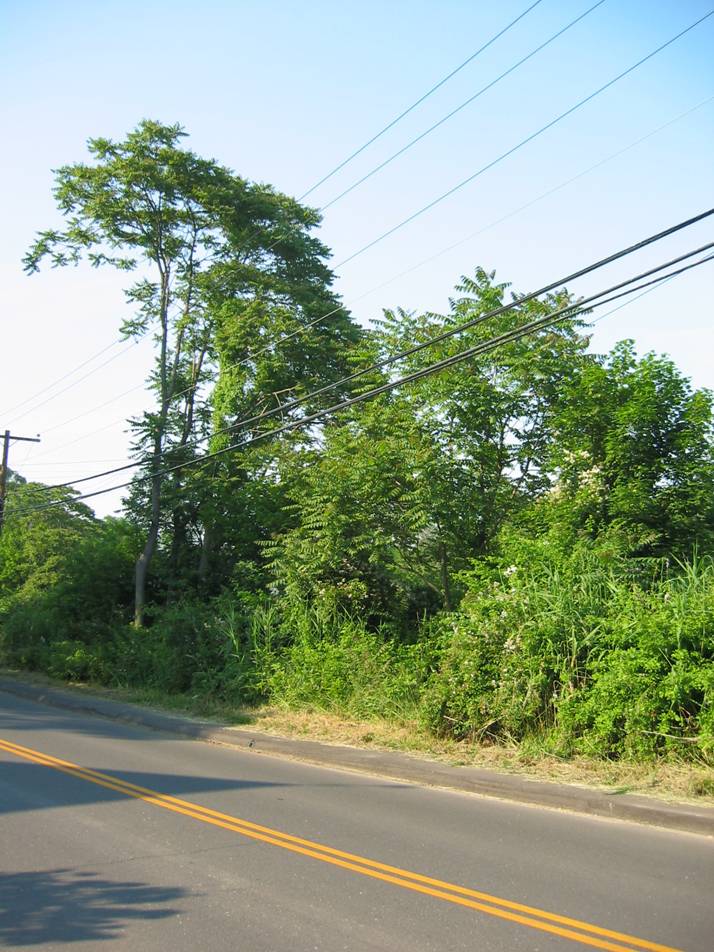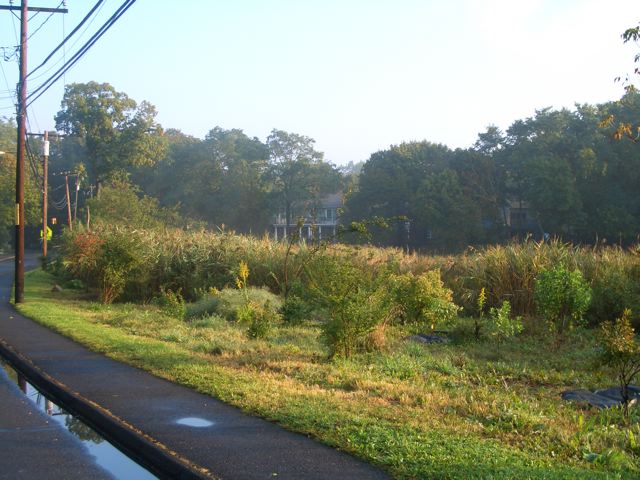Ailanthus or Tree of Heaven was brought to this country many years ago. It is very happy here and grows almost anywhere in the northeast. It is one of the most invasive trees in our area, Norway Maple being the other. Both of these trees are seen along our highways in huge numbers. An Ailanthus tree can produce 350,000 seeds a year which happily root in any nook or cranny. The problem is that they grow to the exclusion of natives. They are allelopathic, or nature’s plant-killers. Allelopathy is a biological phenomenon that is characteristic of some plants, by which they produce certain biochemicals that influence the growth or development of other organisms. The biochemicals produced by both Ailanthus and Norway Maple have a detrimental effect on neighboring organisms. Ailanthus and Norway Maples prevent plant diversity. The Norwalk Land Trust property on Roton Avenue was home to many of these trees. It had about 10 large ones and numerous saplings. In the spring of 2007, as a result of some generous donations by neighbors and a grant from Patagonia of Westport, we decided to have these trees removed professionally. We were advised that it would be necessary to paint the stumps with herbicide to prevent re-growth. We took the “let’s wait and see” attitude on the herbicide, in order to minimize the potential environmental impact. In the summer we realized that this was a well-intentioned mistake. There were hundreds of thriving saplings. In the fall of 2007 we had All Habitat Services LLC a state approved invasive management company, to come and spray this potential new forest with herbicide that was approved by the EPA and Connecticut's DEP for use near water. In 2009, we have only had to treat less than a dozen saplings. |  2004 Ailanthus trees and saplings above  Fall 2009 - After Ailanthus removal, trimming back phragmites, and planting of Pepperidge Farms shrubs |